Just two kilometres from Amritsar, Maqboolpura in Punjab is India’s ‘village of widows’. Almost every family in Maqboolpura has witnessed an untimely death and every child has mourned kin.
Famous for all the wrong reasons, the residents of Maqboolpura are living a life of ‘social stigma’ and anguish. Its men are either dead or are dying with little patience, while the women carry the uphill burden of taking care of the whole family. In 1999, Tribune reporter Varinder Walia found out that 30 women were widowed in three years in a place called Maqboolpura and he named it widows’ colony. Since then, it has gotten a lot worse and the name got stuck ever since.
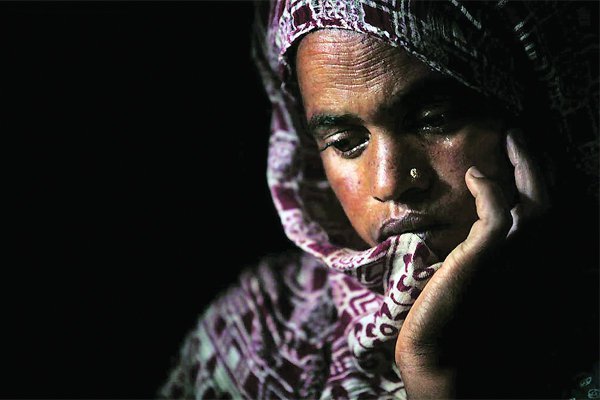
A small locality housing about 25,000 residents who settled here primarily as refugees immediately after the partition, Maqboolpura is a black hole of anguish and despair for families with at least one family member addicted to drugs.
With 1.23 lakhs people addicted to heroin and Rs 7500 crore net worth of drugs consumed every year in Punjab, Maqboolpura takes it to another level with its social stigma.
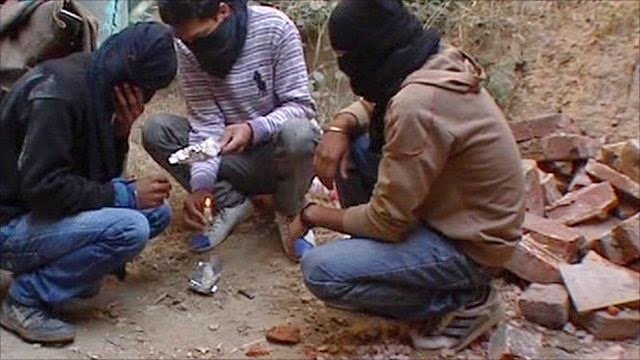
While the demographics of India boasts of having the largest youth population, an entire generation of people addicted to hard drugs in a small town is a red flag.
But in Maqboolpura, almost every family has at least one person who is recklessly sharing needles, swallowing sometimes 100 pills a day, peddling their blood, stealing, falling into debt, forcing their wives and mothers to give them their hard-earned money.
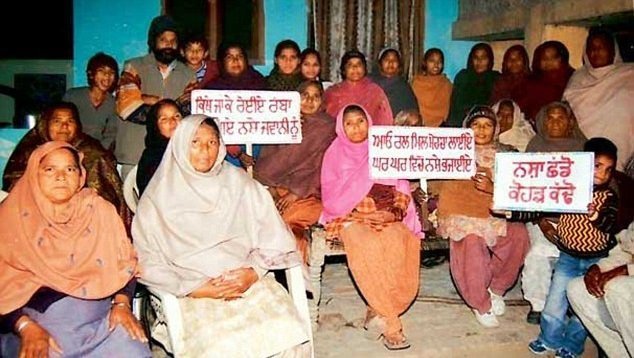
Making headlines for all the wrong reasons, this place, which is close to the Indo-Pak border, has witnessed innumerable pre-mature deaths.
Even the children in Maqboolpura abuse drugs. They do not need any inspiration as they grow up around a male family member who is addicted to drugs, and the orphans are initiated into the dark world by drug peddlers.
It is almost as if Maqboolpura has lost a generation to drugs and no one is definitely doing enough to even change one thing about it.
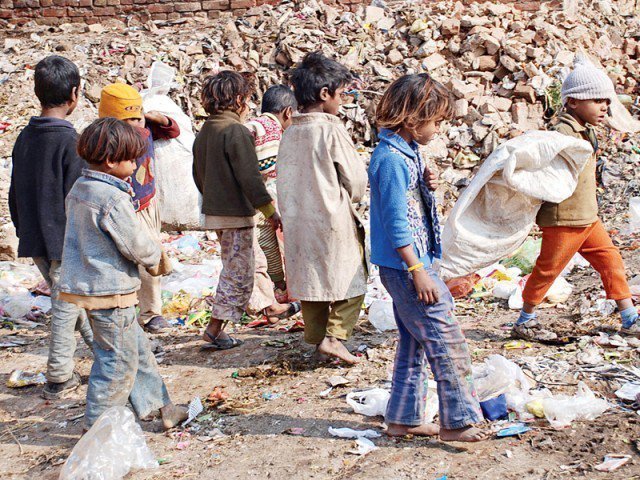
In this corner of Punjab, you can spot a child addicted to drugs, sniffing adhesives and thinners used in paints by the roadside, teenage boys smoking a bhooki (a cigarette rolled with poppy husk seeds) openly or just hanging around and waiting for another variety of gateway drug.
The addicts here go for cheaper variations that are easily available, like black balls of opium paste, gaanja (marijuana), synthetic drugs, cough syrups, painkillers, amphetamines or any other kind of cocktail that could potentially be fatal. Believe it or not, some have even tried lizards’ tails.
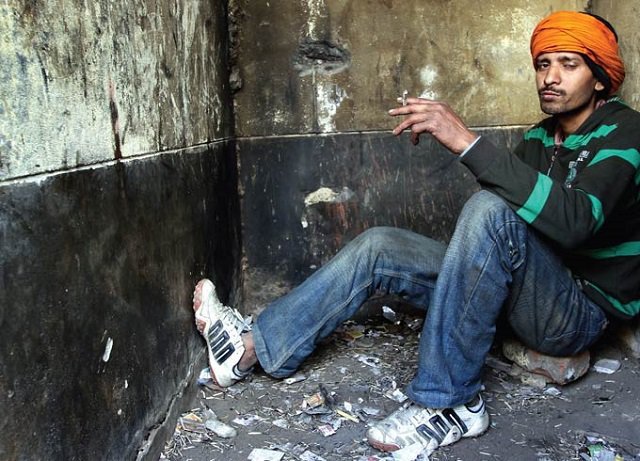
If you are in Maqboolpura, you can easily buy a glass of gilasi (a glass of liquor brewed locally) at prices as cheap as Rs.10 or Rs. 20. If you are willing to shell out more than ten bucks, you can buy yourself a glass of liquor spiked with a dose of cheap synthetic drugs. You never know – that cheap drug could even be crushed moth balls.
Anything and everything intoxicating is mixed with liquor and it makes for the cheapest stuff easily available for doping.
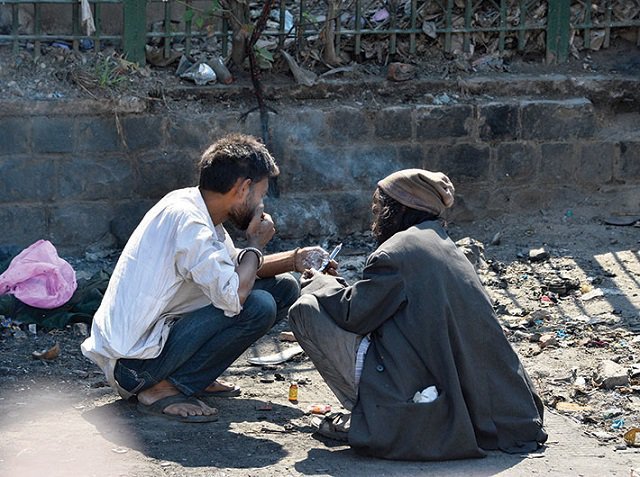
For a problem as grave as this, you would assume that colossal measures would have been taken by the Government and the non-government sector to rid the residents of Maqboolpoora off this problem. But the reality is scary.
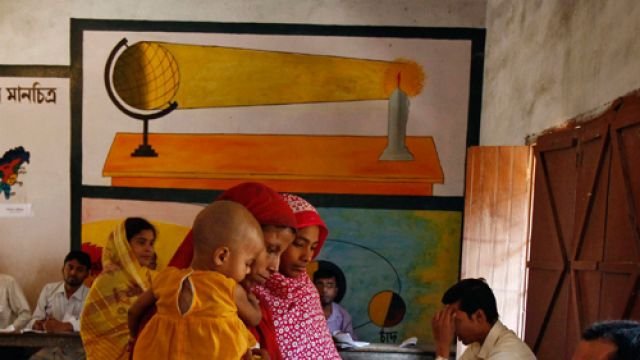
According to a report in The Hindu, an estimated 5000 men underwent treatment in 51 centres across the state, too small for the scale of the crisis. But a much larger number fall prey to illegal centres with untrained staff, where they are chained and beaten. But till the time the state treats addicts as petty criminals, and not patients who need care, progress will remain a distant dream.
Maqboolpura is devoid of any sort of welfare and safety policy for children and women, measures against drug abuse, family welfare programme, or general regulation. Every year the government machinery returns and stays as long as it takes for the residents to cast their votes. And after that, it’s adios.
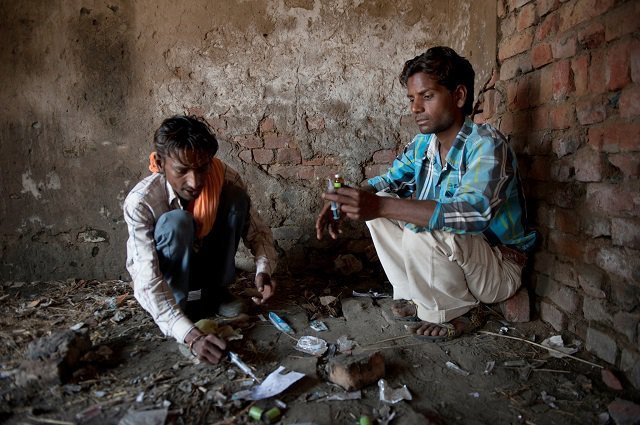
Development or not, economic participation or not, to whom did we lose our sense of moral responsibility as human beings?

















